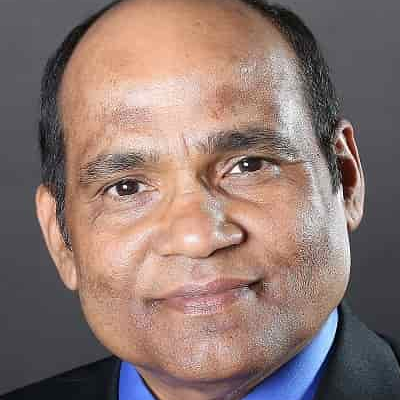Need Help?
22 September 2021
Prof. Dr. Arun K. Bhunia Appointed Editor-in-Chief of Foods
We are pleased to announce that Prof. Dr. Arun K. Bhunia has been appointed Editor-in-Chief of Foods (ISSN 2304-8158).

Name: Prof. Dr. Arun K. Bhunia
Email: [email protected]
Affiliation: Department of Food Science, Department of Comparative Pathobiology (Courtesy), Purdue University, West Lafayette, IN, USA
Interests: microbiology, pathogenesis, host–pathogen interaction, nanobiotechnology, food safety
Homepage: https://ag.purdue.edu/foodsci/Pages/Profile.aspx?strAlias=bhunia&intDirDeptID=14; https://sciprofiles.com/profile/92909.
Prof. Dr. Arun K. Bhunia received his Bachelor of Veterinary Science (B.V.Sc.) degree in India; his Ph.D. from the University of Wyoming, USA; and his postdoctoral training from the University of Arkansas, USA. He is a Professor of Food Microbiology at the Department of Food Science and is affiliated with the Department of Comparative Pathobiology at the Purdue Institute of Inflammation, Immunology, and Infectious Disease (PI4D), and the Purdue University Life Science program (PULSe). He is Chair of the Interdepartmental Food Science Graduate Program. His expertise covers microbial pathogenesis (host–pathogen interaction), probiotic bioengineering, and foodborne pathogen detection. To date, he has co-authored more than 190 peer-reviewed research publications, two textbooks (Fundamental Food Microbiology and Foodborne Microbial Pathogens—Mechanisms and Pathogenesis), he has edited four books, and delivered over 148 lectures. He teaches graduate-level courses on foodborne pathogens and the mechanisms of pathogenesis, microbial foodborne pathogen detection techniques, and intestinal microbiology and immunology. He served on the USDA National Advisory Committee on Microbiological Criteria for Foods (NACMCF; 2013–2017) and has received the Purdue Agriculture Research Award (2003), Purdue Faculty Scholar (2005), Purdue Team Award (2006), IFT R&D Award (2009), Outstanding Graduate Educator Award at Purdue (2013), High-End Foreign Experts Recruitment Program (China) fellowship (2014–2016), Fulbright Specialist (2016–2021), and Maurice Weber Laboratorian Award from IAFP (2017).
With these achievements, we are confident that Foods will thrive under Prof. Dr. Bhunia’s leadership. We warmly welcome him as our new Editor-in-Chief.
The following is a short Q&A with Prof. Dr. Arun K. Bhunia:
- What appealed to you about the journal that made you want to take the role as its Editor-in-Chief?
The journal Foods has gained significant recognition as a platform for open access publication among food scientists since its inception in 2012. Serving as a Section Editor-in-Chief for “Food Microbiology” and as Guest Editor for several special topics for the past several years, I witnessed its enormous growth and the quality of articles it was able to attract in all areas of food science. The opportunity to serve as an Editor-in-Chief is a great honor and together with our outstanding editorial board members, I am looking forward to shaping the future of this journal to cater effectively and efficiently to our science community.
- What is your vision for the journal?
To make Foods a leading open-access journal platform for publication of high quality and high-impact research articles from all areas of food science.
- What does the future of this field of research look like?
The field of food science is highly interdisciplinary. Besides embracing fundamental and molecular research to study the science of food, researchers are at the forefront of addressing sustainability, food security, alternative proteins, food quality, and food safety issues. Big data, machine learning, artificial intelligence, and the internet of things (IoT) will be the leading powerful tools to reshape the field of food science in coming years.
- What do you think of the development of Open Access in the publishing field?
Open Access has opened up the door for scientists from all across the globe to share their research data free of charge, leveling the playing field to benefit all.

